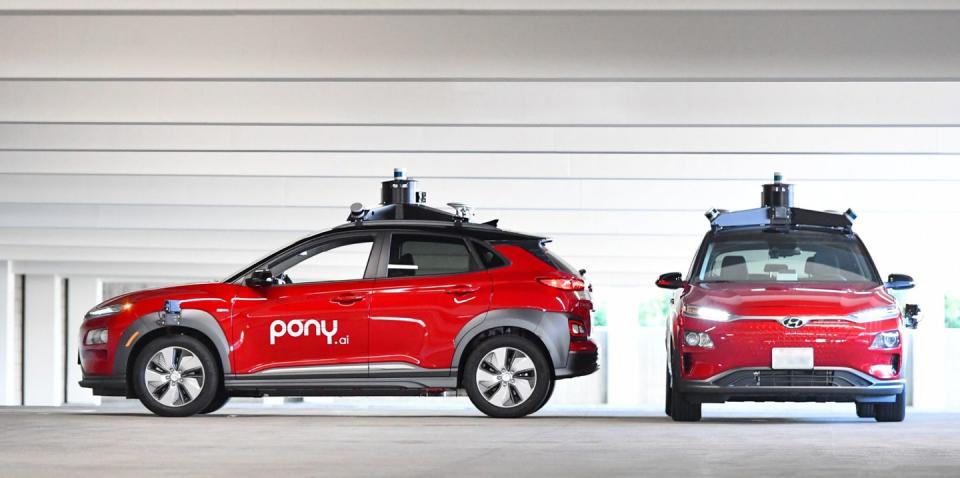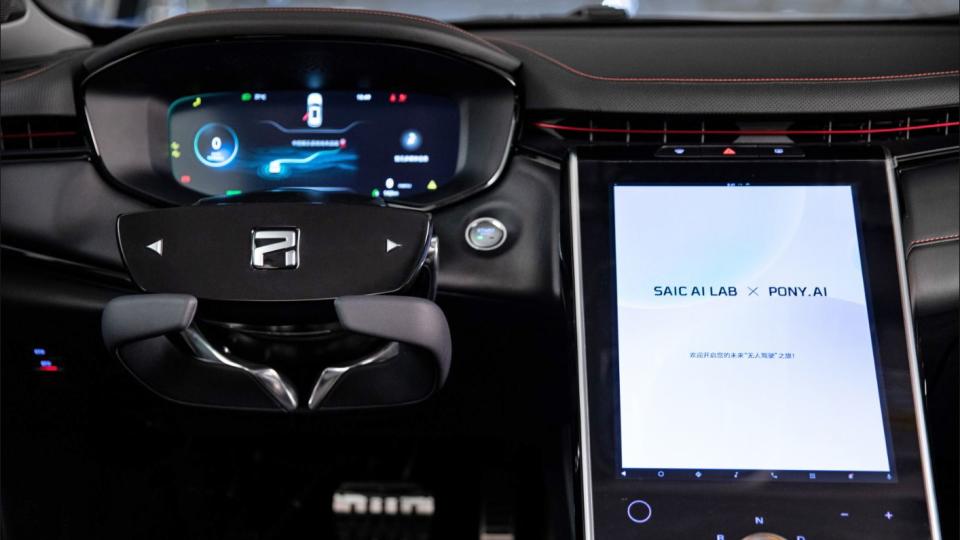Robotaxi Developer Pony AI Is coming to Arizona

Autonomous tech developer Pony AI expands Level 4 robotaxi testing to Tucson, Arizona.
The company has partnered with China's SAIC and Geely to develop robotaxis, using the companies' vehicles and ride-hailing software.
A number of autonomous developers, including GM's Cruise, view the San Francisco Bay Area as a promising launch point for robotaxi service, though wide-scale commercial roll-out has been very limited to date.
Arizona has long been a testing ground for autonomous vehicles, and developer Pony AI is the latest company to launch operations in the state. The autonomous developer's vehicles have covered more than 9.3 million miles testing and operational miles worldwide so far, with the company making plans to begin testing in the state with safety drivers behind the wheel.
Pony AI has teamed up with Pima Community College and will be based at its Automotive Technology & Innovation Center in Tucson. "Tucson is quickly becoming a leading city for tech startups and smart city technology, and Pony.ai is excited to expand our operations there," said James Peng, Pony.ai’s co-founder and CEO.
The company, based in Fremont, had been testing its cars in California but lost its license to test cars in the state after a small crash in October 2021.
Separately, Pony AI revealed this week that it is working with China's SAIC AI Lab to develop a fleet of Level 4 autonomous vehicles based on SAIC's Marvel R crossover. The two companies have revealed a concept car with a foldable steering wheel, with the concept featuring 17 integrated automotive-grade sensors that paint a 360-degree picture of its surroundings at a radius of 200 meters.
The eventual goal is mass production of Level 4 vehicles with an interior and exterior optimized for autonomous driving. "SAIC AI Lab has mature technical strengths in driverless operation, vehicle development, and intelligent cockpit. Its robotaxi project has been affirmed by the market," said Dang Xiang, general manager of SAIC AI Lab.

Pony AI is also teaming up with Volvo parent company Geely to launch an autonomous fleet in Suzhou, China. The robotaxi itself will be based on one of Geely's sedans. The company will use Geely's ride-hailing platform Cao Cao as part of testing.
A greater question is perhaps just when we'll see Level 4 robotaxi rollout in US cities other than San Francisco on a commercial scale, or beyond the two specially created autonomous vehicle zones in Shanghai and Beijing.
At the moment it is mostly GM's Cruise that operates Level 4 robotaxis in a specific part of the San Francisco Bay Area, even though a number of other developers have been testing autonomous vehicles of different types within the state. A number of autonomous developers are currently on the cusp of limited commercial rollouts of Level 4 vehicles, but wide-scale commercial operations remain further on the horizon.
The autonomous taxi industry is still deep in the testing phase but also faces the more daunting hurdles of mass production of Level 4 vehicles, obtaining state and local permits, and launching operations in areas expected to be profitable in the longer term, as well as large-scale service for fleets of autonomous vehicles.
In the end, the self-driving tech itself may turn out to have been the easier part.


 Yahoo Autos
Yahoo Autos 